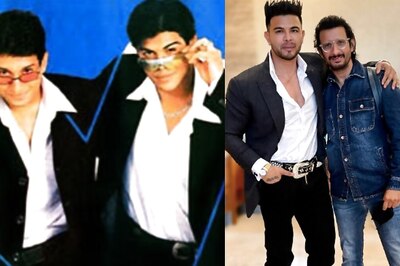
views
Fort Meade: US Army Private First Class Bradley Manning, convicted of providing a massive trove of secret files to WikiLeaks in the biggest data breach in US history, could break a long silence on Wednesday as the sentencing phase of his court-martial ends.
Manning, 25, faces up to 90 years in prison for providing more than 700,000 documents, battle videos and diplomatic cables to WikiLeaks, hurling the pro-transparency website and its founder, Julian Assange, into the world spotlight.
Defense lawyers sought on Wednesday to show the judge that the soldier's superiors ignored signs of mental stress, with an Army psychologist testifying that Manning felt isolated because he was wrestling with his gender identity.
Captain Michael Worsley, who treated Manning from December 2009 to May 2010 during his deployment in Iraq, testified that the stress Manning had felt from his job as a low-level intelligence analyst was compounded by being in a "hyper masculine environment" of a combat zone.
"I think being in the military and having a gender identity issue does not exactly go hand in hand," Worsley said. "You put him in that kind of environment, this hyper masculine environment if you will, with no coping skills, the pressure would have been incredible."
That pressure reached a peak when Manning punched another soldier, Worsley said. He said he had met infrequently with Manning and had had no input from his superiors until the punching incident.
A military spokesman said Judge Colonel Denise Lind would most likely sentence Manning next week at the earliest.
The prosecution will be given an opportunity to rebut the defense case. Manning's main lawyer, David Coombs, was expected to finish his case on Wednesday at Fort Meade, Maryland, asking for a lenient sentence after calling a dozen witnesses.
BREAKING HIS SILENCE
Manning, a slightly built soldier, has said almost nothing since the trial began under an international spotlight on June 3. His lawyers kept him off the stand, and he has sat silently at their side, sometimes resting his chin on a fist.
The former junior intelligence analyst could end that silence on Wednesday when his lawyers read a statement to the court, a military spokesman said.
It would be the first time Manning has spoken publicly at length since late February, when he read a 10,000-word statement in a hearing leading up to his court-martial.
The Crescent, Oklahoma, native said then he had hoped to spark a public debate about US foreign and military policy in Iraq and Afghanistan by releasing the data to WikiLeaks.
The material that shocked many around the world was a 2007 gunsight video of a US Apache helicopter firing at suspected insurgents in Baghdad. A dozen people were killed, including two Reuters news staff. WikiLeaks dubbed the footage "Collateral Murder."
Manning was convicted of 20 charges, including espionage and theft, on July 30. He was found not guilty of the most serious count, aiding the enemy, which carried a life sentence.
Prosecutors argued that Manning was an arrogant soldier who aided al Qaeda militants and harmed the United States with the release of the documents.
His attorneys have countered that the Army ignored his mental health problems and violent outbursts and that computer security at Manning's base was lax. They contended that Manning was naive but well-intentioned and suffering from a sexual identity crisis in Iraq.
Manning, described by his superiors as an Internet expert, faces the prospect of decades of monotonous prison life - with no online access - once he is sentenced.


















Comments
0 comment